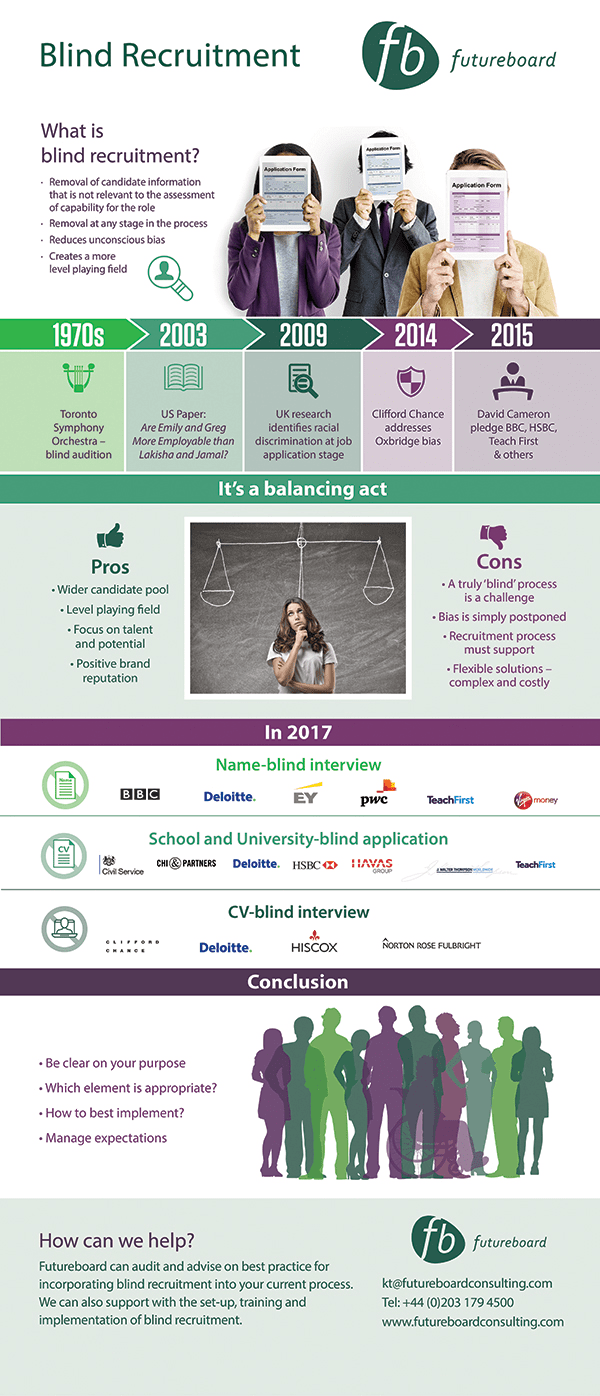Even if for many years, companies have been fighting in order to completely eliminate bias and discrimination in recruitment, there are still discriminative recruitment campaigns and recruiters that can’t go beyond their clichés. However, some recruiters have been innovating and have decided to use a technique to eliminate unconscious bias that can kind of appear during an interview. This technique is called blind recruitment. It is true that recruitment remains something discriminating, because we choose someone that has a certain education or a certain experience, but these are considered as positive criteria, unlike discrimination on the grounds of gender, religion or origins. In this article, we will see what blind recruitment is and we will see why it is a good technique to eradicate hiring selection criteria.
What is blind recruitment?
A huge number of organizations have recently adopted this recruitment trend. However, this is not something new. In a very interesting article found on Entreprise Innovation, we learn that the blind recruitment technique had already been used in the 1980s by the Toronto Symphony Orchestra. They used it so that the orchestra would not be composed of white men only. They organized an audition and didn’t look at the musicians, but only listened to their music. As a result, it became an orchestra with 50 percent of men and 50 percent of women.
Here is how blind recruitment simply works: you remove from your CV all information that are in connection with your identity, that is to say:
- Your name
- Your gender (something that is not compulsory in some countries)
- Your age
- Your education

The benefits of blind recruitment
As we said before, the aim is to completely eradicate bias and clichés that anybody can have when he or she reads a family name, a date of birth or a college name. Recruitment is unfortunately a personal judgement and when a candidate has something in common with a recruiter, the latter might think this is the best applicant.
But according to the international recruitment agency Hays, blind recruitment is a technique that increases productivity, performance and of course that favors diversity in the workplace, something that is still a problem in 2017. Because diversity is a factor that allows companies to distinguish themselves from the competition. In the article, we learn that for example, a report from the McKinsey agency revealed that “companies in the top quartile for gender diversity and ethnic minority board representation became 15 per cent and 35 per cent more likely, respectively, to financially outperform those in the bottom quartile.”
Nevertheless, as a recruiter explained, blind recruitment is not a magic solution, because there should not be discrimination in hiring anymore. “Generally speaking, making CVs blinder than they currently are is a good thing because it does help mitigate bias. However, blind recruitment is not a silver bullet, neither absolutely right nor absolutely wrong. It is a tool that you can use to create a level playing field, so use it, but use it with caution.”
Author: Anne-Marie

























« Are Recruiters Relying Too Much on Social Media?
Is LinkedIn Still a Good Recruitment Tool? »



